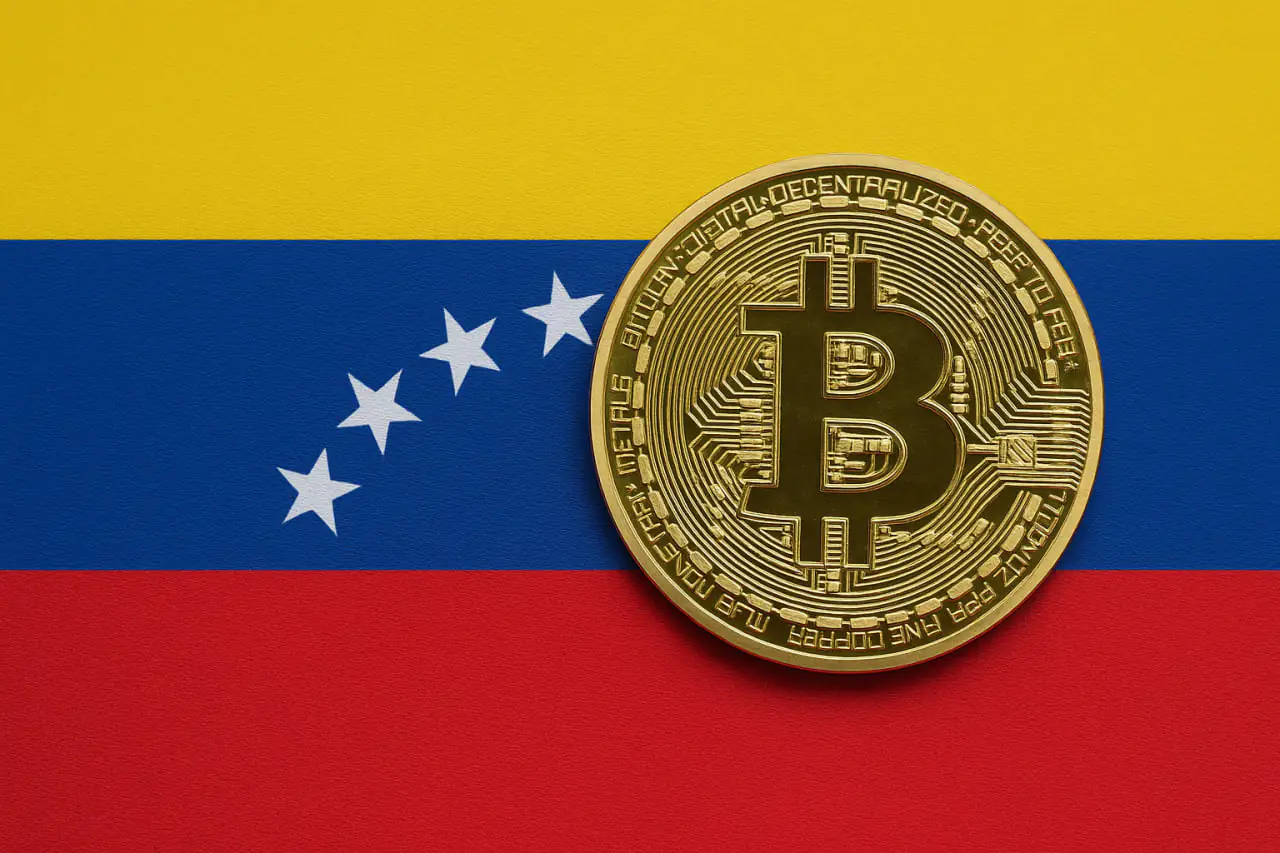In a move that could reshape its struggling economy, Venezuela is preparing to let citizens buy, store, and transfer cryptocurrencies directly through the country’s banks—a first-of-its-kind integration that merges Bitcoin and stablecoins with the nation’s financial system.
For years, Venezuelans have relied on digital assets simply to stay afloat. As inflation gutted the bolívar, stablecoins like Tether (USDT) became the de facto currency for cross-border payments and day-to-day trade. Crypto, once a speculative investment, evolved into a lifeline. Now, Caracas appears ready to formalize that reality.
Financial technology provider Conexus, a company responsible for handling nearly half of all digital transfers in the country, is developing a blockchain infrastructure that will link local banks with the crypto economy. Once the system launches, citizens will be able to deposit Bitcoin and stablecoins, make crypto-based transfers, and instantly convert between fiat and digital assets—all under the umbrella of the regulated banking sector.
### December 2025: The Target Date for a National Crypto Pivot
Conexus president Rodolfo Gasparri said the rollout, expected by December 2025, aims to bring transparency and trust to a system where people already use crypto informally. The goal is to create a regulated gateway that mirrors how Venezuelans are actually managing their finances.
“Stablecoins have become part of daily life here not for trading, but for surviving,” Gasparri said. “The banking system must evolve to reflect that.”
The project will effectively phase out the need for shadow-market peer-to-peer apps and create official bridges between bolívars, Bitcoin, and stablecoins. Banks, for the first time, will be able to hold and manage digital assets on behalf of clients within a framework approved by financial regulators.
### From Crisis to Catalyst
Venezuela’s experiment comes at a time when much of the world is still debating how or whether to merge traditional banking with blockchain technology. The decision stands in stark contrast to the cautious approach of most central banks, which often treat cryptocurrencies as speculative or destabilizing.
By embedding crypto into its financial infrastructure, Venezuela may be setting a precedent: using blockchain not to disrupt banks, but to rebuild public trust in them.
If successful, the initiative could unlock faster transactions, lower transfer fees, and broader financial inclusion in a country where millions remain unbanked or dependent on informal remittance channels.
### A Model for Economies Under Pressure
Analysts say the experiment could influence other nations facing similar challenges, particularly those battling inflation or currency depreciation. By legitimizing stablecoins within a national banking framework, Venezuela could demonstrate a practical path toward digital monetary stability.
For many observers, the move is as much about politics as economics—signaling that even nations under heavy financial strain are ready to explore crypto as a tool for resilience.
### A Calculated Gamble
The integration of blockchain into state banking is not without risks. Regulatory clarity, liquidity management, and cybersecurity will test the system’s durability.
Still, for a population that already relies on crypto out of necessity, the official recognition of digital assets marks a milestone moment.
In a sense, Venezuela’s government is catching up to its own people, formalizing what citizens have already built from the ground up: a decentralized safety net in a fragile economy.
If all goes to plan, by the end of 2025, Venezuela could be the world’s first nation where blockchain and banking are one and the same—a bold experiment in reimagining trust, money, and the meaning of financial sovereignty.
—
*The information provided in this article is for educational purposes only and does not constitute financial, investment, or trading advice. Coindoo.com does not endorse or recommend any specific investment strategy or cryptocurrency. Always conduct your own research and consult with a licensed financial advisor before making any investment decisions.*
**Author:**
Alexander Zdravkov, Reporter at Coindoo
Alexander Zdravkov is a person who always looks for the logic behind things. He has more than 3 years of experience in the crypto space, where he skillfully identifies new trends in the world of digital currencies. Whether providing in-depth analysis or daily reports on all topics, his deep understanding and enthusiasm for what he does make him a valuable member of the team.
https://coindoo.com/venezuela-plans-worlds-first-crypto-integrated-banking-system/
